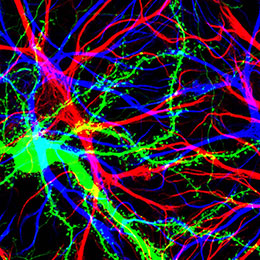
Multiple sclerosis (MS) is the most common disabling neurological disease affecting young adults. Although MS has no cure, conventional treatments can improve symptoms, reduce relapses, and delay disease progression.
Some people also try complementary health approaches for MS. Here’s what research has shown about some of these approaches:
- Certain substances from cannabis (marijuana) may help reduce spasticity or pain in people with MS, but no cannabis-derived medications have been approved for this purpose in the United States.
- Fish oil and ginkgo supplements have been studied for MS but have not been shown to be helpful.
- Low blood levels of vitamin D may be a risk factor for long-term disease activity and progression. However, it’s uncertain whether taking vitamin D supplements is beneficial.
- Practicing yoga may help with fatigue and mood in people with MS, but yoga hasn’t been shown to improve mobility or thinking ability.





















.png)












No hay comentarios:
Publicar un comentario